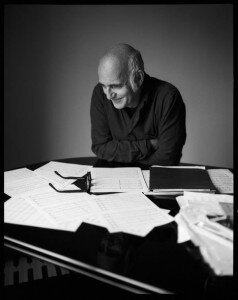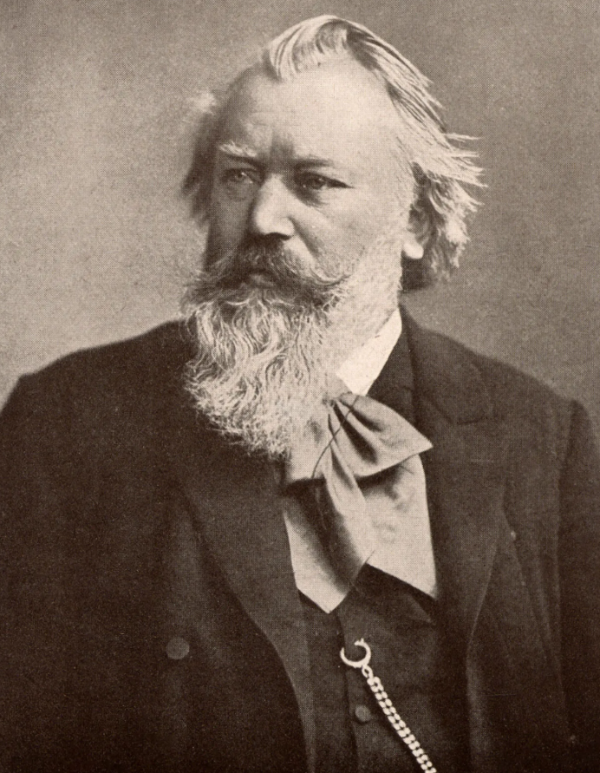What is it about Ludovico Einaudi and his music which provokes such strong reactions from so-called “serious” classical music people? His music is regularly criticized by these people for being “bland”, “unchallenging”, “unsophisticated”, or simply “bad”…
Einaudi’s musical language is minimalist and meditative, often composed of repeating cycles of broken chords in the bass with a simple, pretty melody in the treble. He tends not to offer the unexpected or more colourful harmonic progressions one finds in the music of Philip Glass, but like Glass’, his hypnotic music has a wide appeal, especially amongst younger audiences.
Arguably the most successful living classical artist, Einaudi has made a fortune from his particular brand of contemporary classical music; his concerts sell out, he has more followers on Spotify than Mozart, and his albums top the classical music charts. For those who sneer at his music, I suspect their negative attitude is really founded on envy at his success – something which is generally regarded with suspicion in the classical music world.
His music challenges the strict definition of “classical music”, and for serious classical music aficionados and critics, it threatens to dilute their beloved art form. These gatekeepers of classical music would rather Einaudi and his ilk (composers like Yann Tiersen, Michael Nyman or Ólafur Arnalds) were not in their world. Yet his music is constructed from the same classical structures, harmonies and idioms as that of Schubert, for example. It’s unchallenging and safe: despite studying with the Italian modernist composer Luciano Berio, Einaudi eschewed the hallmarks of modernism in favour of a style which is consonant, melodic and highly accessible. And also highly marketable.

© Beniamino Barese
For the purists, this mellifluous but apparently superficial music should not be categorized as “classical music”. But for the record label and the marketing people, how else should they define it? It’s not pop music, it’s not jazz…. It could be described as ‘New Age’ or ‘chill out’ or ‘post-classical’, but for marketing purposes, the “classical music” tag gives it greater currency and gravitas.
Personally, I’m not really bothered how Einaudi’s music is categorized. It is pleasant, as ambient background music, and I have also found his piano music useful in my teaching as it is very appealing to teenagers in particular. It is quite challenging to play, one of the chief challenges being the ability to bring shape and colour to the repetitive passages. It can also act as a gateway to other repertoire, such as the minimalist music of Philip Glass, and if it encourages wider exploration of the piano repertoire, that has to be a good thing.
Einaudi’s recent seven-concert series at London’s Barbican was a sell out, and his other concerts in the UK later this year are already sold out – a significant achievement for any artist regardless of the genre of their music, but especially for a classical artist. The mainstream critics have been generally less than complimentary about the music and the performer, describing it variously as “unmemorable and humourless”, “soulless”, “unpalatably synthetic” and “cheap”.
“The young guy next to me had a tear on his cheek. I’m just not sure what for” (The Arts Desk review)
The snobbery and sneering in these reviews demonstrates, yet again, that elitism is, sadly, very much alive and well within the world of classical music, often perpetrated by those who are quick to decry social elitism, while simultaneously displaying a certain academic elitism towards those people who enjoy Einaudi’s music and flock to his concerts.
Musical taste is subjective and highly personal. Einaudi’s music may be simple, but there is beauty in simplicity, and accessibility in his gentle, inoffensive lyricism, as confirmed by the huge popularity of his music. It may not compete with the complexities and imagination of Messiaen, but it is possible to like both. For many, Einaudi’s music provides solace in our uncertain times, and for that reason alone, it has value. Perhaps next time a critic attends a concert where the music says nothing to them, but appeals to a large number of people, they might pause to consider why this is the case.





Einaudi is to classical music what Il Divo is to opera. None are such. I went to a concert yesterday out of curiosity, without hardly knowing who the guy was, and I go to piano concerts often. I had no prejudice whatsoever, on the contrary, and, I am sorry to say, I found that boredom is something this guy’s music has in spades. I left before it ended after nearly two hours of endlessly repeated basic and “pretty” patterns. This is no snob comment, I like all kinds of music, but I need to be somehow challenged, not just narcotized by it. People seemed to adore and that’s fine. Me, I could hear every ticking of every aching second passing as nice tunes dragged and dragged and dragged.
People who find this music bland clearly have no taste. He’s an amazing talent.
He’s an amazing talent.
Beg to disagree. His music is trivial – I have taste in a wide taste in musical styles.
The focus of the new “modern classical” movement isn’t about virtuosity in the performance or composition. It’s about a mood or feeling. Pair that with some analog synths, strings and a light show and you’ve got a genre that appeals to a certain demo. It’s not suppose to be aligned with classical music and shouldn’t be looked at as a recessive response to more “serious” music.
There is great skill in the recording process of a lot of these modern classical people. The composers involved in the scene don’t necessarily base their efforts the same that concert composer do or did in the past. It’s different, it’s progressive and there’s a lot to be desired and a lot to be ignored in the genre.
I discovered Einaudi through Yann Tiersen and I get tired of Einaudi in a way that I don’t get tired of Tiersen. I agree with the author that it’s basically mood music, and if you think the music is repetitive, you’re probably not tuning into how Einaudi changes the voicing with each “repetition” of a progression. My issue is just this ethereal style doesn’t sound as good in 2/4 and 4/4 as it does in waltz time, which is what Tiersen works in far more heavily. I not only wouldn’t put Tiersen in the same genre with Einaudi, I don’t even think he’s a classical composer. Nor does Tiersen himself, I don’t think. Also, Tiersen uses much more varied instrumentation, sometimes not using piano at all.
As a practicing musician, who plays a variety of musical genre and as an avid listener of all types of music, I offer the following: Simply put, all art is in the eyes, ears and feelings of the beholder. And, we as humans can see, here, touch and feel very differently about certain works of art. Therefore IMO, no one should be given any license to dictate good and bad in a way that demeans opposing views. If you don’t like something that you’re listening to, listen to something else. If you don’t like a certain art exhibit, find another. If you don’t like a steak order fish or chicken. It’s your taste and your taste alone that counts. If one likes a piece of music and would like someone else to enjoy it as well one should be be tactful in how they go about convincing the other person. Remember, some of the music of the great Masters we enjoy today was negatively criticized and ridiculed when first introduced. Peoples feelings about all forms of art music, fine arts, theater, dance, and industrial arts have changed over the years and will continue to change. And while someone may have high class degrees in the arts, and consider themselves experts, it still comes down to our own individual view on what we like or do not like. We should all be keeping an open mind and challenging ourselves to appreciate diverse views expressed by others.